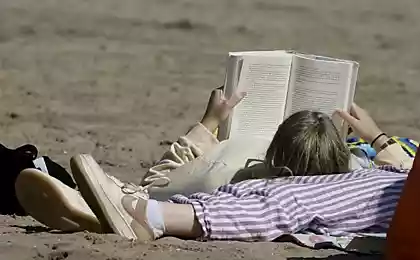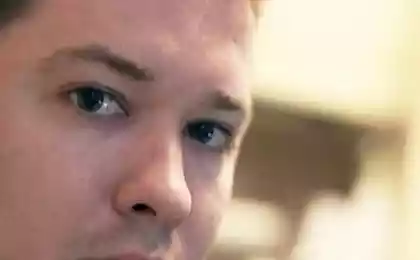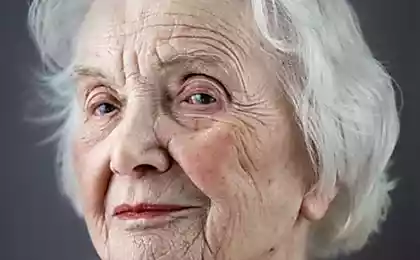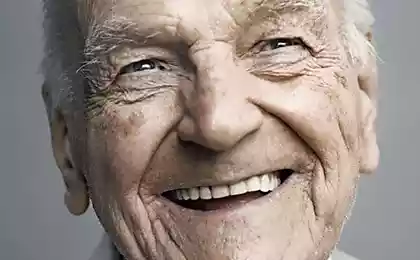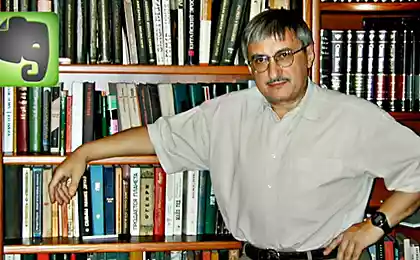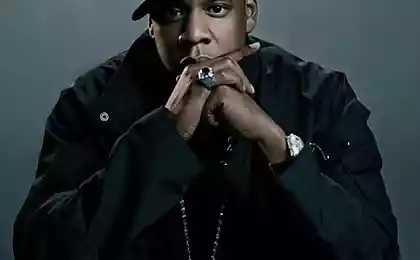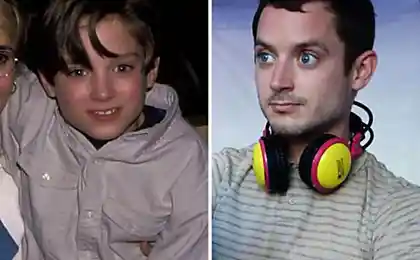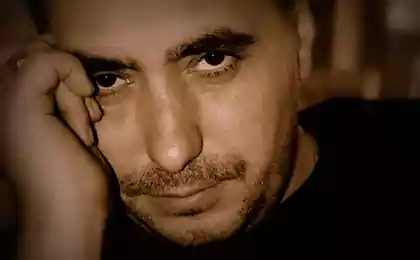988
Do here and now
Matthew O'Reilly, honored medical officer, paramedic ambulance, not just in their practice faced with a hopeless situation. When dying, which can not be saved, asked if he dies, can there be a right answer? Needless to hypocritically say "no" to him - and to a greater extent of its own - the illusory calm or should tell the truth? About how this dilemma was solved for him, Matthew O'Reilly told an audience TED. We give a translation of his own monologue.
In the last seven years I worked as a medical assistant in the emergency Suffolk County, New York. We first arrived on the scene in a variety of cases ranging from traffic accidents and ending with Hurricane Sandy.
If you're like most, you are afraid of death. One feels it coming, and some do not. There is even a little-known medical term - "a premonition of death." In practice, this symptom. As a medical professional, I should be able to treat it like any other, so when the patient is having a heart attack looks me in the eye and says, "I'll die today", you need to take this into account when evaluating his condition.
During the work I have repeatedly found himself in a situation that the person needs to live a few minutes, and I can not do anything for him. And then there is a dilemma: whether to tell the dying that he dies, or lie? At first, I lied. Feared. He was afraid that if I say the truth, people will die in fear, desperately clinging to the last minute, he was afraid that it was only multiplies his misery.
But everything changed one case. Five years ago, I arrived at the scene of an accident involving a motorcycle. Motorcyclist injured, incompatible with life, I have seen that is in no way able to help. Like hundreds of other people on the verge of death, he said, "I'm dying?" And then I stepped away from the usual scheme of white lie and decided to tell as it is - yes, he's dying, and we are powerless to prevent it. I was struck by his reaction. He leaned back, his face was humility, acceptance of the inevitable. There was no fear. Was quiet.
And then I realized - no, not my thing - salvation lie, lie to appease. Since then, people in their last moments, I was telling the truth.
All had about one reaction: calm and acceptance. Only three options.
The first striking: regardless of religious and cultural backgrounds dying need forgiveness. It does not matter whether he calls it a sin or just sorry about something, guilt is universal. Once I was an elderly gentleman - he was taken to a massive heart attack. Prepared for the fact that he is about to happen cardiac arrest, I spoke to him about what was going to happen. But he already knew all about it - in my voice and facial expressions. When I brought the defibrillator to his chest, he looked at me and said: "I regret that I spent so little time with their children and grandchildren, that time spent on themselves, was selfish." In the face of death, he wanted one - forgiveness.
The second - the memory.
People want to be remembered, if not close, then let it be a medical assistant, a casual passer-by, so do not care who. This gives the illusion of immortality, quenches his immortality, thirst. How many times have I heard this question: "Will you remember me?»
And the last thing is probably strong: dying, people want to believe that his life had meaning, that it is not wasted on nonsense. Very long ago it was, I just started working on the ambulance. Car accident, a woman locked in raskurochennye car, it crashed at high speed other. Critical condition. While firefighters tried to remove it from the car, I crept as close as possible to start assist. She said: "I could have done much more in life." Did not feel that leaves some trace in the world. But from the further conversation, I learned that at one time she adopted two children, and in that year they had to do in the College of Medicine. Thanks to this woman two people got a chance for a better future, and now they will learn the doctors and will save the lives of others. It took 45 minutes to get her out of the car, but she died before.
I also believe the movies: the last minute - it's a solid horror, panic, fear. But empirically came to that often the truth about the impending death of people take very different. And that's exactly what it seemed insignificant, some trivia, imperceptible actions allow to meet the news calmly.
Referring

In the last seven years I worked as a medical assistant in the emergency Suffolk County, New York. We first arrived on the scene in a variety of cases ranging from traffic accidents and ending with Hurricane Sandy.
If you're like most, you are afraid of death. One feels it coming, and some do not. There is even a little-known medical term - "a premonition of death." In practice, this symptom. As a medical professional, I should be able to treat it like any other, so when the patient is having a heart attack looks me in the eye and says, "I'll die today", you need to take this into account when evaluating his condition.
During the work I have repeatedly found himself in a situation that the person needs to live a few minutes, and I can not do anything for him. And then there is a dilemma: whether to tell the dying that he dies, or lie? At first, I lied. Feared. He was afraid that if I say the truth, people will die in fear, desperately clinging to the last minute, he was afraid that it was only multiplies his misery.
But everything changed one case. Five years ago, I arrived at the scene of an accident involving a motorcycle. Motorcyclist injured, incompatible with life, I have seen that is in no way able to help. Like hundreds of other people on the verge of death, he said, "I'm dying?" And then I stepped away from the usual scheme of white lie and decided to tell as it is - yes, he's dying, and we are powerless to prevent it. I was struck by his reaction. He leaned back, his face was humility, acceptance of the inevitable. There was no fear. Was quiet.
And then I realized - no, not my thing - salvation lie, lie to appease. Since then, people in their last moments, I was telling the truth.
All had about one reaction: calm and acceptance. Only three options.
The first striking: regardless of religious and cultural backgrounds dying need forgiveness. It does not matter whether he calls it a sin or just sorry about something, guilt is universal. Once I was an elderly gentleman - he was taken to a massive heart attack. Prepared for the fact that he is about to happen cardiac arrest, I spoke to him about what was going to happen. But he already knew all about it - in my voice and facial expressions. When I brought the defibrillator to his chest, he looked at me and said: "I regret that I spent so little time with their children and grandchildren, that time spent on themselves, was selfish." In the face of death, he wanted one - forgiveness.
The second - the memory.
People want to be remembered, if not close, then let it be a medical assistant, a casual passer-by, so do not care who. This gives the illusion of immortality, quenches his immortality, thirst. How many times have I heard this question: "Will you remember me?»
And the last thing is probably strong: dying, people want to believe that his life had meaning, that it is not wasted on nonsense. Very long ago it was, I just started working on the ambulance. Car accident, a woman locked in raskurochennye car, it crashed at high speed other. Critical condition. While firefighters tried to remove it from the car, I crept as close as possible to start assist. She said: "I could have done much more in life." Did not feel that leaves some trace in the world. But from the further conversation, I learned that at one time she adopted two children, and in that year they had to do in the College of Medicine. Thanks to this woman two people got a chance for a better future, and now they will learn the doctors and will save the lives of others. It took 45 minutes to get her out of the car, but she died before.
I also believe the movies: the last minute - it's a solid horror, panic, fear. But empirically came to that often the truth about the impending death of people take very different. And that's exactly what it seemed insignificant, some trivia, imperceptible actions allow to meet the news calmly.
Referring


